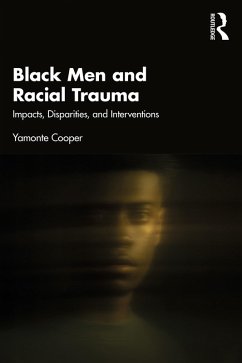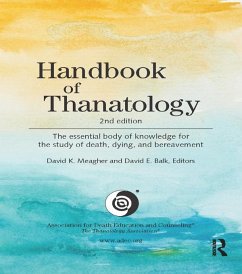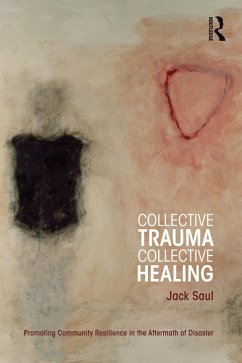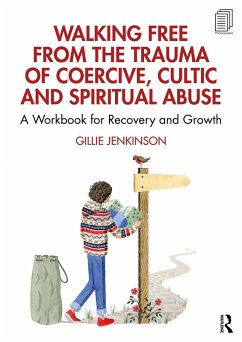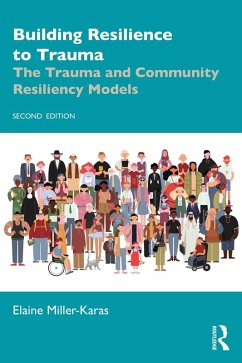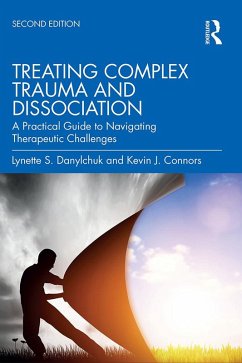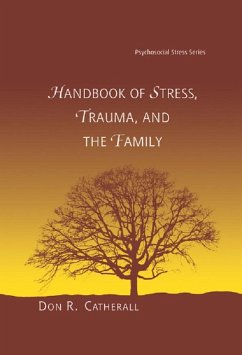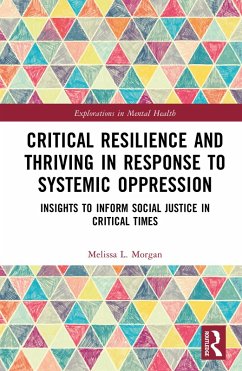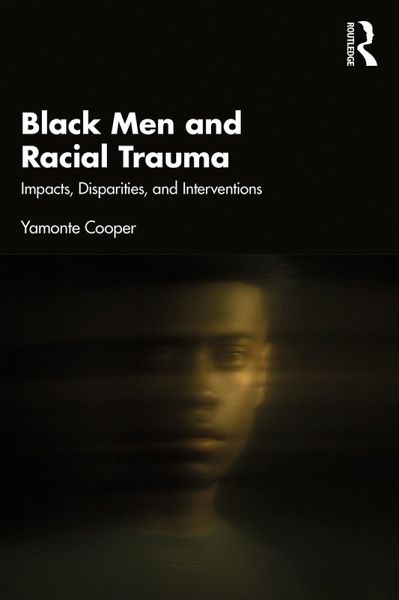
Black Men and Racial Trauma (eBook, PDF)
Impacts, Disparities, and Interventions
Versandkostenfrei!
Sofort per Download lieferbar
34,95 €
inkl. MwSt.
Weitere Ausgaben:

PAYBACK Punkte
17 °P sammeln!
This volume comprehensively addresses racial trauma from a clinical lens, equipping mental health professionals across all disciplines to be culturally responsive when serving Black men.Written using a transdisciplinary approach, Yamonte Cooper presents a Unified Theory of Racism (UTR), Integrated Model of Racial Trauma (IMRT), Transgenerational Trauma Points (TTP), Plantation Politics, Black Male Negation (BMN), and Race-Based Shame (RBS) to fill a critical and urgent void in the mental health field and emerging scholarship on racial trauma. Chapters begin with specific definitions of racism ...
This volume comprehensively addresses racial trauma from a clinical lens, equipping mental health professionals across all disciplines to be culturally responsive when serving Black men.
Written using a transdisciplinary approach, Yamonte Cooper presents a Unified Theory of Racism (UTR), Integrated Model of Racial Trauma (IMRT), Transgenerational Trauma Points (TTP), Plantation Politics, Black Male Negation (BMN), and Race-Based Shame (RBS) to fill a critical and urgent void in the mental health field and emerging scholarship on racial trauma. Chapters begin with specific definitions of racism before exploring specific challenges that Black men face, such as racial discrimination and health, trauma, criminalization, economic deprivation, anti-Black misandry, and culturally-specific stressors, emotions, such as shame and anger, and coping mechanisms that these men utilize. After articulating the racial trauma of Black men in a comprehensive manner, the book provides insight into what responsive care looks like as well as clinical interventions that can inform treatment approaches.
This book is invaluable reading for all established and training mental health clinicians that work with Black men, such as psychologists, marriage and family therapists, social workers, counselors, and psychiatrists.
Written using a transdisciplinary approach, Yamonte Cooper presents a Unified Theory of Racism (UTR), Integrated Model of Racial Trauma (IMRT), Transgenerational Trauma Points (TTP), Plantation Politics, Black Male Negation (BMN), and Race-Based Shame (RBS) to fill a critical and urgent void in the mental health field and emerging scholarship on racial trauma. Chapters begin with specific definitions of racism before exploring specific challenges that Black men face, such as racial discrimination and health, trauma, criminalization, economic deprivation, anti-Black misandry, and culturally-specific stressors, emotions, such as shame and anger, and coping mechanisms that these men utilize. After articulating the racial trauma of Black men in a comprehensive manner, the book provides insight into what responsive care looks like as well as clinical interventions that can inform treatment approaches.
This book is invaluable reading for all established and training mental health clinicians that work with Black men, such as psychologists, marriage and family therapists, social workers, counselors, and psychiatrists.
Dieser Download kann aus rechtlichen Gründen nur mit Rechnungsadresse in A, B, BG, CY, CZ, D, DK, EW, E, FIN, F, GR, HR, H, IRL, I, LT, L, LR, M, NL, PL, P, R, S, SLO, SK ausgeliefert werden.




